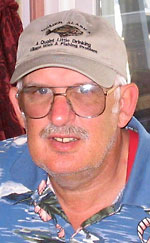
1
Wang Wei, generally considered one of the three major Chinese (High Tang) poets, wrote a series of twenty poems collectively known as the Wang River Collection. They meant to record a journey up the river with his good friend, Pei Di, while also being about Wang’s mansion located in the river valley.
paragraph 2
A group of poets from Toronto known as ‘Pain Not Bread’ published a book in 2000 titled Introduction to the Introduction to Wang Wei. The poems are modern free verse interpretations of Tang poetry by Wang, Tu Fu and others. Among the works is ‘Mountain Range,’ a beautiful adaptation of Wang Wei’s ‘Deer Park.’
3
Based on their work and others, I’ve set out to ‘transform’ Wang Wei’s poems into mostly verse libre sonnets, a free form sonnet. The order is not Wang Wei’s. I selected the order on the basis of how much I liked the poems and how difficult I thought the transformation would be.
4
III: After Wang Wei’s Luan House Rapids (13) — Beyond the Estuary
A torrent drowns duckweed and bulrush;
squalls whip cattails and willow thickets.
Canvas wet outside and
in, soaked shoes
squirt with each muddy step.
A trickle,
rivulet, rush flows over field
and road, into cellars and badger holes.
Boats break from their moorings, trash bins
float like empty shells past broken dolls and bikes.
On a cloudless night, we embrace the stars;
we pour diamonds through our fingers.
On a cold autumn night, jewels turn to dross;
promises dull, lumps of cinder without warmth.
A summer’s debris drifts to block the drain,
a white feather trapped between stones.
5
The literal translation by Wai-Lim Yip, “Rill of the House of the Luans”, is
6
blast-blast —
autumn rain/s middle
lightly-lightly/shallow-shallow — rock flow pour
jump wave/s-bead/s self mutual/each other splash
white egret startle again down
7
Like the best of Oriental poets, Wang Wei leaves the poem unfinished; the meaning of the final line a mystery to be worked out by the reader.
8
My version is:
Autumn rain and wind gusts
strike the boulders below.
The rapids’ waves collide —
startled egrets rise, settle.
IV: After Wang Wei’s Hsin-i Village (18) — Outside Magnolia Park
9
Mountains and mounds of shaded thicket,
red and black foliage left untended
behind concertina wire and ‘no trespassing
signs,’
unwanted and unneeded, cut from the city’s conscience.
I cup my hands to drink from a broken fountain;
you gather pigeon feathers and seeds
to be tossed when you decide
to travel along the river, unencumbered.
Calyx, a husk —
If the blind can not follow his steps,
nor deaf hear his silence, if the scholar guided
by centuries fails, how can I assume I’ll succeed?
Hibiscus petals, paper, silk, plastic,
pressed in the pages of a water-stained book.
10
The literal translation by Wai-Lim Yip, Hsin-i Village, is
11
tree tip hibiscus* — flower
mountain middle set-forth red calyx
stream hut/home still/silent no man
profuse — profuse open and fall
___________________
*also translated as magnolia, lotus and water lily by others.
12
The first line of Wang Wei’s poem in Chinese script is a picture of the change that a shrub such as a hibiscus might go through on its way to flower. Such pictures are common in Li Po. See the Introduction to Willis and Tony Barnstone’s Laughing in the Mountains: Poems of Wang Wei for a study of the poem as script.
My version is:
13
From buds to trumpet blossoms,
scarlet petals
strewn on the mountain path.
The hut streamside
abandoned,
a shrub blooms, sheds, blooms
again.
14
Personally, I think only a fool would attempt this poem,
one of the three best of the River series.
Laughing Lost in the Mountains: Poems of Wang Wei, Tony Barnstone, Willis Barnstone, Xu Haixin, University Press of New England, 1991
Introduction to the Introduction to Wang Wei, Pain Not Bread, Brick Books, 2000
Chinese Poetry, Wai-Lim Yip, Duke University Press, 1997

Gary Blankenship

Gary Blankenship
Gary Blankenship is a sometime poet, editor and judge, who is much too fond of poetic series based upon whatever crosses his path. He is the author of A River Transformed, poetry based on Wang Wei’s River Wang poems and available at http://www.lulu.com/content/178110